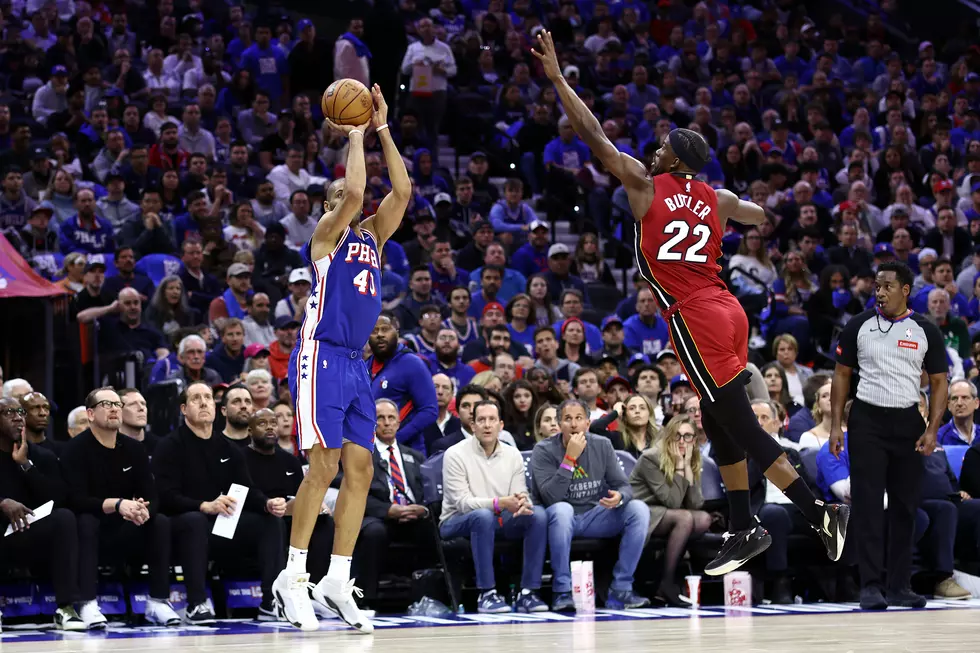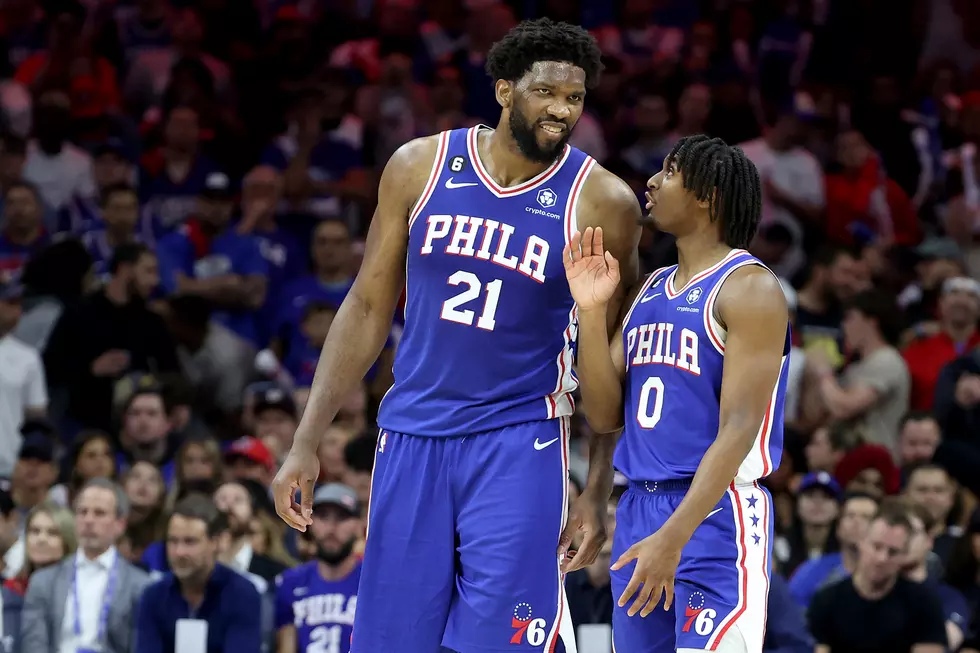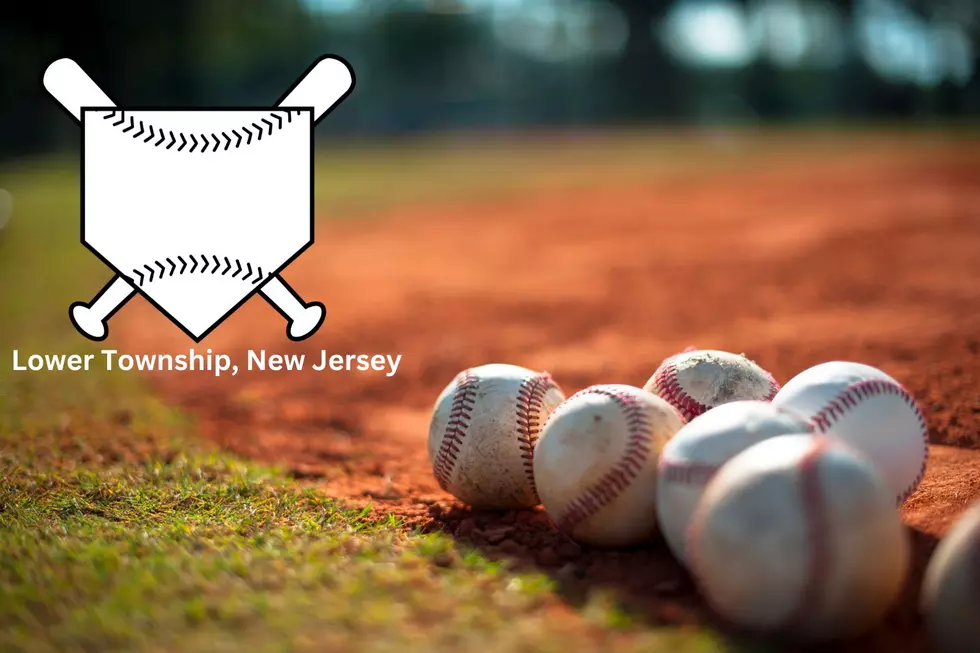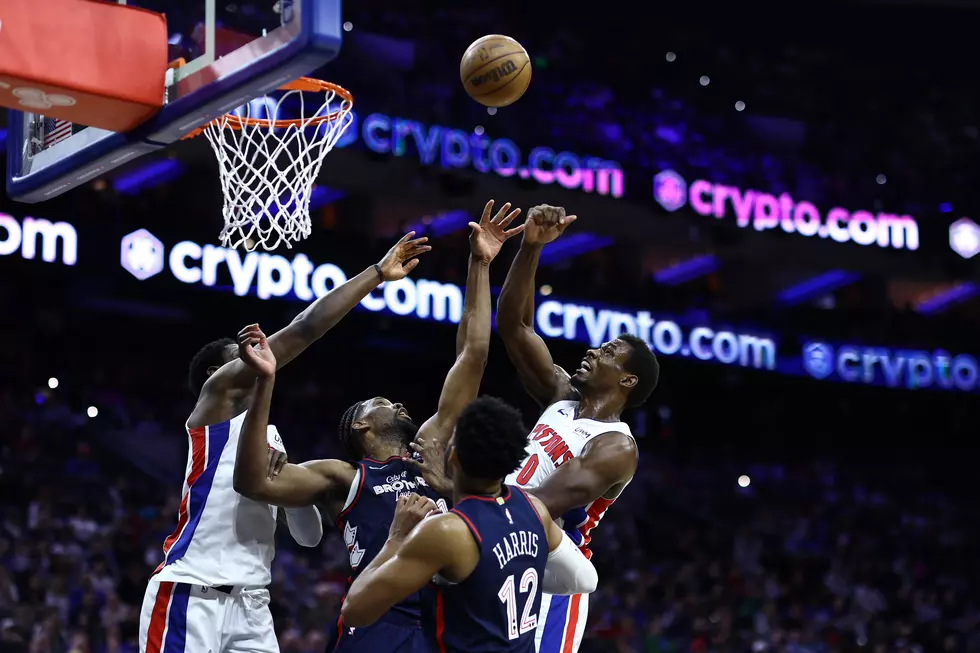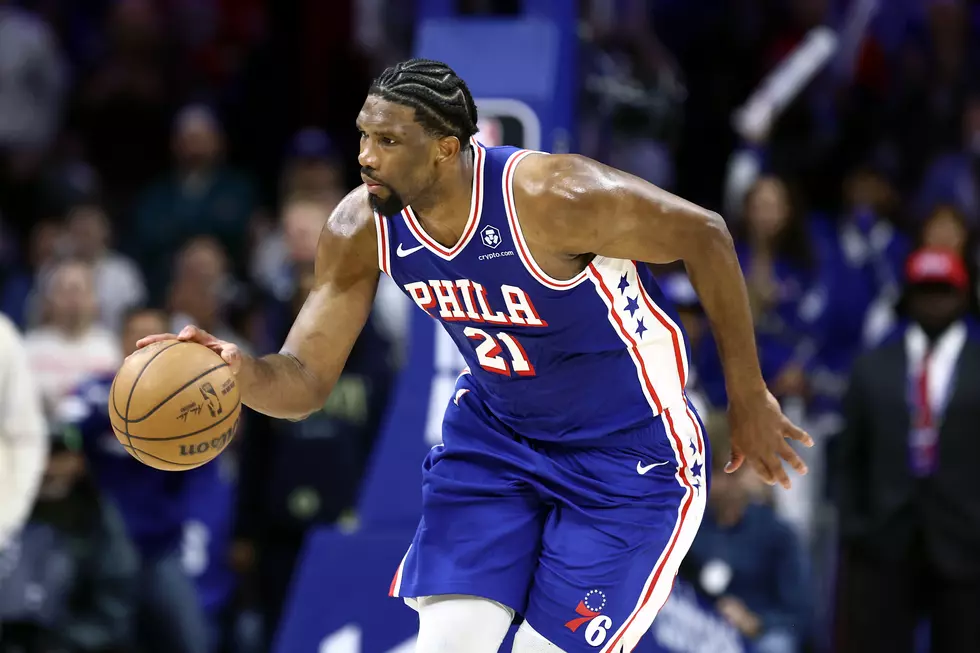
The Friendly Confines Turns 100 Years Old
Wrigley Field, the home of the Chicago Cubs, marks the 100th anniversary of its first game on Wednesday with a matchup against Arizona. The ballpark that opened as Weeghman Park on April 23, 1914, has hosted millions of fans and been the scene of some of baseball's most indelible moments. Some stars who graced its friendly confines offer their memories:
---
Mike Ditka has a question.
"Can you name another championship that was won there?" he asked.
Well, an iconic Chicago franchise won its share at Wrigley Field, and it's the one that Ditka played for and coached.
The last time a team won a major title at Wrigley Field, Ditka was a star tight end and the 1963 Bears knocked off Y.A. Tittle and the New York Giants 14-10 in the NFL championship game.
"Papa Bear" George Halas was the man in charge. Hall of Famer Bill George led the defense back then. And in that final game, Ed O'Bradovich set up the go-ahead touchdown with an interception and Richie Petitbon sealed it with a pick in the end zone in the closing seconds. That gave Chicago its eighth and final title under Halas.
The Bears also won NFL championship games at Wrigley in 1933, 1941, 1943, and Ditka was the head coach when the 1985 team won it all, with Walter Payton, Jim McMahon and that dominating defense. The team was long gone from the old ballpark by then, having moved to Soldier Field in 1971. But Ditka has fond memories of the old home, quirks and all.
"It was a great place," he said. "The fans were close to you. They did a great job with it. It was what it was. It was a baseball stadium. It was fine. The accommodations in those days, the locker rooms, everything in those days was fine. There was not a problem with it."
It was just, well, different. The gridiron was wedged in a north-south direction from left field toward home plate with no room to spare.
The south end zone was cut off in one corner by the visitor's dugout, which was filled with pads for safety, and was only 8 yards deep instead of the regulation 10. One corner of the north end zone came almost right up against the left-field wall, another hazard for the players.
The locker room was hardly spacious for a baseball club let alone a football team. In that sense little has changed at Wrigley, although newer clubhouses have been constructed since the Bears moved out.
"We had 40-some players at that time so it wasn't quite as hard - and five coaches," Ditka said. "It wasn't like you had a staff of 20."
---
There's something comforting to Mike Veeck every time he goes to a baseball game in Chicago, whether it's on the North Side or South Side.
He feels a connection to his past, to his dad and grandfather.
"To be able to sit in the bleachers where your dad did something and where relationships that lasted more than a lifetime where forged, it's quite a feeling," Veeck said.
The Veeck family has strong ties on both sides of town, with his dad, Bill Veeck Jr., having owned the White Sox on two occasions after working for the Cubs, and his grandfather having served as president of the National League club.
As Wrigley Field turns 100, it's worth noting that the Veecks played big roles along with the Wrigleys in shaping the way the game was marketed and presented. Whether it was cleaning up the ballpark and creating a more family-friendly atmosphere or embracing the idea of broadcasting games on radio, they helped transform the fan experience.
Then there's the ivy. That was Bill Veeck Jr.'s idea.
He had it planted at the base of the new brick outfield walls in 1937, the same year the Cubs replaced the ground-level bleachers with elevated brick bleachers and installed the famed scoreboard above them.
"He worked for the Wrigley family, and there wasn't much that he and the Wrigleys could agree on after my grandfather died," Mike Veeck said. "The one thing they could really agree on was the horticultural display that now is arguably one of the most famous."
P.K. Wrigley "loved the vines, supported it, and Dad got a chance to install the scoreboard."
Bill Veeck Jr. went on to own the Cleveland Indians and St. Louis Browns in addition to the White Sox, and Mike Veeck went to work for his father on the South Side in the 1970s.
"One of the things that's been so magical all these years is beautiful Wrigley Field," Veeck said. "When I was with the White Sox in the late `70s, we never worried about marketing vs. the Cubs. Actually, we were back then outdrawing them. But what did always worry us was beautiful Wrigley Field even though Comiskey was older, built in 1910."
The White Sox left Comiskey following the 1990 season. Wrigley, however, remains.
"Wrigley spent a great deal of money on that ballpark," said Mike Veeck, a minor league team owner and executive. "Comiskey fell into disrepair many times, and that didn't happen, Wrigley knew what he had. They understood it's just a comfortable bandbox to watch a ballgame."
Even so, he wants to make a few things clear.
He only goes to Cubs games when his friend and business partner Bill Murray drags him. Mike Veeck is a White Sox fan, and he jokes his memories of Wrigley Field "aren't so warm and fuzzy."
One other thing. Harry Caray leading the fans in "Take Me Out to the Ballgame" during the seventh-inning stretch? That started at Comiskey Park - not Wrigley Field - in the 1970s with Bill Veeck Jr.'s encouragement.
"Ninety-seven percent of people interested in revisionist history because of the super channel (WGN), and because of Harry's larger-than-life personality, think that (it) started on the North Side, which of course it didn't," Mike Veeck said. "It started at Comiskey. Sometimes revisionist history works in your favor."
---
Steve Stone has memories of Wrigley Field, both as a pitcher who played there for and against the Cubs, and as a broadcaster, sitting in the booth next to Caray for years and later next to Caray's grandson, Chip.
He learned about the wind the hard way, watching helplessly as batter after batter sent his pitches over the fence. "I once gave up five homers in 2 1-3 innings," he said.
A student of the game, Stone knew the record was six homers, so when manager Jim Marshall came to take him out, he joked that since it was only the third inning he knew that if he stayed in the game he could shatter the record. Marshall had seen enough and lifted Stone.
As a broadcaster, he saw firsthand what a huge Cubs fan the elder Caray was when, upon his return to the booth after suffering a stroke in 1987, Caray got a call from President Ronald Reagan while he was on the air.
Just as Reagan launched into a story about his wife, Nancy, and her connection to Chicago, Caray cut him off to say that Bobby Dernier had just hit a bunt single. Then, said Stone, "He hung up the phone. Because of a bunt single by Bobby Dernier."
---
For Cubs chairman Tom Ricketts, the most important event at Wrigley Field did not occur between the foul lines. It happened in the center field bleachers.
Ricketts and his siblings were at a game against the Braves in July 1991 when his life changed forever. He met his wife, Cecelia.
"All my siblings were with me," he said. "We used to hang out there all the time. We were just making small talk, and we were talking about Omaha, where I grew up. And my wife was with all of her friends from Creighton, which is in Omaha, where she went to college. We just kind of started talking. Twenty years and five kids later ..."
So when Ricketts talks about the connection fans have to the ballpark, he speaks from personal experience. He lived across the street in an apartment at the corner of Addison and Sheffield with his brother Peter.
His bond with the Cubs really started to take hold as a freshman at the University of Chicago in 1984, when the team ended a playoff drought that dated to 1945 and launched a legion of bleacher bums who made Wrigley the place to be. A quarter of a century later, the Ricketts family purchased controlling interest of the team from the Tribune Co.
"All the years we hung out as single guys in the bleachers, those were great years," Ricketts said. "I think just walking about and talking to people and just knowing how much the ballpark means to them, it's really special. Everybody has a story. I think it's just a unique place with unique memories."
---
Ryne Sandberg took a seat in the visitors' dugout at Wrigley Field, and that was a little odd. But just a little.
"This is a home for me," he said.
The Hall of Famer was back at Wrigley for the Cubs' home opener this year, managing the visiting Philadelphia Phillies and reliving a flood of memories.
He thought back to the playoff run in 1984, to the charged atmosphere that developed around the ballpark. And, yes, he recalled the game that put him in the spotlight. Cubs fans simply refer to it as "The Sandberg game."
Chicago beat St. Louis 12-11 in 11 innings on June 23, 1984, and what Sandberg did was nothing short of eye-popping. He had five hits and drove in seven runs, crushing tying home runs against Bruce Sutter in the ninth and 10th innings.
"That was a special game for sure, for the team and for me personally as far as taking my game to a different level and changing my expectations of myself as a player with power," Sandberg said. "(Manager) Jim Frey talking to me that spring training about driving the ball and hitting a home run every now and then and adding power to my game. That game really told me that I could do that. It was really a different mindset that game gave me, and it was something I wanted to live up to the rest of that year, which led to the MVP and also brought new standards for me each and every year."
He won the NL MVP award with a .314 average and 19 homers after hitting just eight the previous season. He made the first of 10 All-Star teams and won the second of nine gold gloves.
---
From the historic to the strange, Billy Williams saw it all at Wrigley Field during his Hall of Fame career.
"The ballpark's 100 years old; a lot of stuff has happened," he said.
He thinks back to 1969, when the Cubs looked like they were on their way and maybe in position to end their championship drought, only to get caught down the stretch by the New York Mets.
He recalls Willie Smith kicking off that season with a game-winning homer against Philadelphia in the 11th inning at Wrigley. He mentions Ken Holtzman tossing a no-hitter against Atlanta that August, a gem that got preserved when a gust of wind knocked down what looked like a home run by Hank Aaron in the seventh. Williams made the catch against the ivy in left.
About that ivy ...
"Some of the strangest things have happened with the vines," he said, whether it was balls getting stuck or Jose Cardenal hiding stuff in them.
Williams remembers Cardenal, the right fielder, hiding balls in the ivy during batting practice. During games, Cardenal would on occasion pull one of them out and throw it back to the infield.
What stands out most to Williams is how Wrigley - and Boston's Fenway Park - have stood the test of time.
"A lot of stuff has happened here," he said. "The history has stayed here. That's what I like about it. That's why we're celebrating the 100th anniversary."
---
Ernie Banks remembers it was a scorching day in 1967 at Wrigley Field. He walked into the clubhouse and saw a bunch of teammates dreading the heat when he delivered three famous words.
"Let's play two!" he bellowed.
The way Banks recalls it, everyone in the room thought he'd lost his mind.
"Everybody was there - all the players, the writers," he said. "I said, `Boy, it's a beautiful day! Let's play two!' And they all looked at me, `This guy's crazy. It's 90, 100 degrees out there. He's talking about playing two games.' That kind of stayed with me."
Kind of stayed with him? That's kind of an understatement.
It's a statement that came to define Banks and his enthusiasm for the game. And for Wrigley: Banks wanted to live at the ballpark.
Bob Lewis, the club's traveling secretary, lived in an apartment near the home players' entrance along the left-field side that now houses the stadium's catering operation. Banks wanted to stay there. Instead, he lived in an apartment elsewhere.
"It was a place that I didn't want to leave," Banks said.
(Copyright 2014 The Associated Press. All rights reserved. This material may not be published, broadcast, rewritten or redistributed.)
More From 97.3 ESPN

